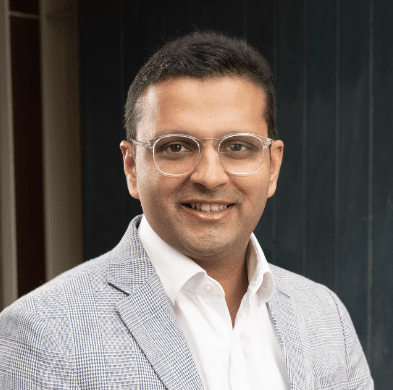What we covered in our chat
In this episode of the Well Workplaces podcast, I had a fascinating and deeply insightful chat with Dr. Raghav Murali-Ganesh, co-founder and CEO of Osara Health. Raghav is a former oncologist who now leads a digital health company tackling one of the most pressing workplace health issues: cancer.
We began by discussing how the profile of cancer has shifted in the modern workplace. No longer is it purely seen as an acute, terminal condition that forces people out of work entirely. Many people with cancer today are living longer and choosing to stay connected to work during or after treatment. This change is driven by advancements in treatment, better survivorship outcomes, and a broader recognition of the social and economic importance of work to someone’s identity and wellbeing.
The Silent Workplace Burden
Raghav highlighted that cancer is one of the top three conditions affecting Australian workplaces, alongside mental health and musculoskeletal issues, and is a leading cause of unscheduled absenteeism. However, because cancer is rarely compensable and often not work-related, most employers have limited visibility over its actual impact. He explained that once organisations introduce structured cancer support through Osara Health, they are often shocked by how many employees quietly enrol in the program.

Support that Works - and is Measurable
One thing that stood out to me was Osara Health’s commitment to both human connection and clinical rigour. The team receives powerful individual testimonials almost daily, which they share internally to keep the mission front and centre for everyone, from developers to coaches. On a broader level, Raghav shared that Osara is one of the only virtual oncology platforms globally to have published multiple clinical studies.
Their research shows that people who participate in the Osara Health program return to work faster, experience less fatigue, and report lower levels of pain and distress. These studies, presented at major oncology conferences, give the program serious credibility and a clear business case for employers and insurers looking for ROI through reduced absenteeism and improved quality of life.
Looking Ahead: A Global Mission
When I asked Raghav about the future, he remained laser-focused on cancer, despite questions from investors about branching into other chronic conditions. His view is that cancer is both a massive global issue and one where his team can make the biggest difference. Osara has already expanded from Australia into New Zealand and the US, with more markets on the roadmap.
The team is also exploring how their support model can be used alongside cutting-edge cancer therapies. For instance, they're working with pharmaceutical partners to help patients better tolerate side effects of life-extending treatments—potentially improving survival outcomes.
Final thoughts
Speaking with Raghav was an eye-opener. It’s clear that Osara Health is not only filling a much-needed gap in how we support people with cancer at work, but doing it in a way that is clinically sound, emotionally profound, and globally scalable. It’s a massive problem, but one that Raghav and his team are tackling with clarity, compassion, and serious impact.
Written by Tom Bosna
May 2025